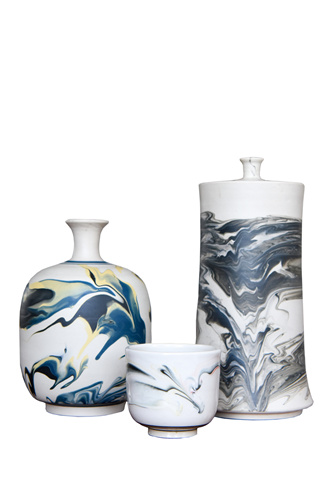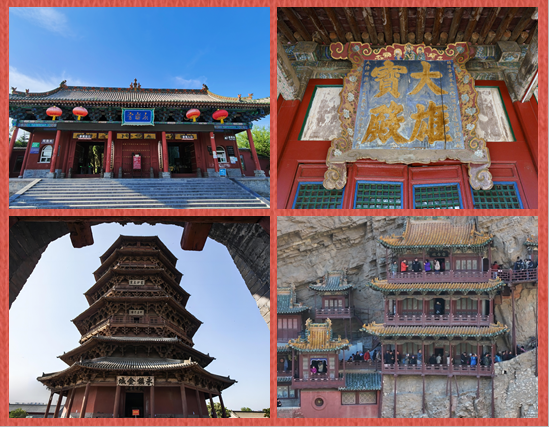Molding a career

Zhang's Yunshui porcelain items feature characteristics of Chinese landscape painting. [Photo provided to China Daily]
The art of Pingding carved porcelain had been lost due to war and turmoil toward the end of the Song Dynasty (960-1279). Zhang and his father began to rediscover the art based on the diggings and findings by porcelain experts in the 1960s.
"It was frustrating at first, when we saw all that we sent to the furnace come out of it ruined," Zhang says.
Zhang and his father were not going to be discouraged by their initial failure. Through trial and error, they managed to resuscitate the art and once again bring it back to the public eye. They have also been able to integrate the traditional art with modern technology and culture.
The Yunshui porcelain, literally meaning "cloud and water", Zhang developed a few years ago, is characteristic of Chinese landscape painting elements and presents more colors than the usual black glaze.
Zhang has also broadened the range of his porcelain objects, from small plates and bottles to large pots and flasks.
In 2018, Zhang was named a national intangible culture heritage inheritor for his ability to make black-glazed carved porcelain.
Building bliss in mud
Born in a small village in Pingding, Zhang has been exposed to pottery since childhood. His father and uncles were craftsmen working at a local porcelain plant.
"I often went with my father to work and played with the mud," Zhang recalls.
He then developed a habit of watching his father and uncles making porcelain.
Zhang began training with his father and uncles at 17 years old.
He picked up skills for black glaze, molding and kiln operation.
"At that time, I was driven to learn more by curiosity," Zhang says.
Not until the 1990s did Zhang start to take the initiative and explore the world of porcelain manufacture.
He met several interns led by professors from the Central Academy of Fine Art, the predecessor of today's Academy of Arts and Design, Tsinghua University.
"They trekked a long way from Beijing and worked very hard," Zhang recounts, adding that it dawned on him that he had no reason not to work harder, when all the resources he needed were within arm's reach.
After the Beijing students were gone, Zhang immersed himself in acquiring all the knowledge he could on porcelain.
He studied techniques and practiced clay modeling on the revolving stone disc.
Often, he came out of the plant, his face and clothes covered in mud, but "it is one of my happiest memories", Zhang recalls.



